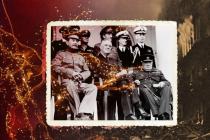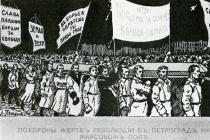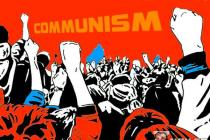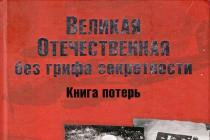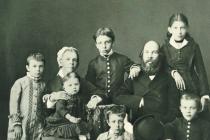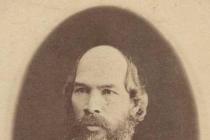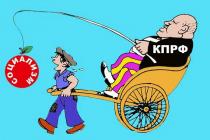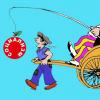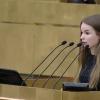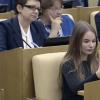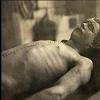Alexander Ulyanov - Lenin's brother - was almost always in the shadow of his more famous relative. But it is interesting how the course of history would have turned if it had not been for the oath of young Volodya to avenge Sasha, who was executed by the tsar. It was then that the future leader of the world proletariat said his most famous phrase: "We will go the other way."
Childhood and youth
Alexander Ilyich Ulyanov was born in Nizhny Novgorod on March 31, 1866. When he was 3 years old, the family moved to Simbirsk. Alexander's father, Ilya Nikolayevich, first held the position of inspector of public schools, and 5 years later he was promoted and took the place of director of the directorate. Mother, Maria Alexandrovna, came from an intelligent family and knew several foreign languages. It was she who taught her children to read and write. In total, Maria Alexandrovna had 8 children, two of them died in infancy.
Sasha learned to read quite early, namely at the age of 4. When he was eight, his home schooling was completed, and he entered the Simbirsk gymnasium. Starting from elementary grades, according to his fellow practitioners, he was very popular at school. This is evidenced by the fact that the gymnasium graduation, which took place in 1883, was named "Ulyanov's class".
I must say that Alexander Ulyanov was brought up on classical Russian literature. He loved to read the works of Pushkin, Dostoevsky, Tolstoy, Nekrasov. In addition, while still in the gymnasium, he became seriously interested in natural science, in particular, zoology. But Sasha's real passion was chemistry. When he was 16 years old, he independently equipped for himself a kind of chemical laboratory, where he spent his free time, often staying overnight.
As you can see, young Alexander Ulyanov was an extremely developed, very serious and immersed boy beyond his years. Proceeding from this, many predicted a great future for him, certainly associated with science.
Student years
Alexander, after graduating from a classical gymnasium and receiving a gold medal, in 1883 easily entered the St. Petersburg University. He becomes a student at the Faculty of Physics and Mathematics. By the way, this university was already at that time not only one of the best universities, but also the largest scientific center in the Russian Empire.
The first two years of study in the capital, Alexander Ulyanov spent all his time attending lectures and doing scientific research. He was one of the most beloved students of D.I.Mendeleev, therefore he was a regular in the chemical laboratory, where he could often be seen sitting at a microscope. At that time, he did not even think about politics.
At the end of the second year, he finally decided on the choice of specialization - he was most interested in him. He conducted a course study, for which he was awarded a gold medal, which widely opened the doors for him to real scientific activity. Then no one doubted that the most talented student Ulyanov would remain at the university and eventually received a professorship.

It was Alexander's scientific successes that largely contributed to the increase in his popularity among students. Soon he joined the Scientific and Literary Society at St. Petersburg University. On the initiative of Prince Golitsyn, Count Heyden and other reactionary students, this organization acquired the opposite impetus. A group of students with pronounced revolutionary views began to exert a tremendous influence on him.
Gradually, Alexander began to participate in all illegal student meetings and demonstrations, as well as conduct revolutionary propaganda in the workers' circle. At the end of 1886, together with his comrade Shevyrev, he organized the so-called terrorist faction in the Narodnaya Volya party.

Assassination attempt
On March 1, 1887, the assassination of Emperor Alexander III was planned. It was organized by the same terrorist faction. The original plan was to shoot the king, but it was later strongly rejected. Then the idea arose to throw bombs, and Andreyushkin and Gerasimov expressed their desire to do so.
After numerous attempts on the emperor's life, the authorities began to pay special attention to those students who constantly participated in illegal demonstrations, and the police often opened their correspondence. One of these letters spoke of a merciless terror that was to be committed in the near future. This message was addressed to a certain Nikitin. The police gradually began to unravel the thread of the conspiracy against the emperor. Thus, the attempt on his life and his comrades was discovered and prevented.

Trial
It is known that from 15 to 19 April court sessions were held, which were held behind closed doors. Only ministers, their entourage, senators, members of the State Council and persons belonging to the highest bureaucracy were allowed to attend. Even relatives and friends of the defendants were not only not allowed into the courtroom, but were not even allowed to meet with them.
Several dozen people were arrested for the attempt on the emperor's life, but only 15 of them were brought to trial. Among them was Alexander Ulyanov, Lenin's brother. Initially, for all convicts, they demanded, but a little later, eight defendants, this harsh sentence was replaced by other punishments. The emperor signed the verdict only to five of the accused, in the list of whom, in addition to Shevyrev, Osipanov, Generalov and Andreyushkin, Alexander Ulyanov was also listed. The rest were assigned different terms of imprisonment, as well as exile to Siberia.

Execution of revolutionaries
As you know, Alexander's mother wrote a letter to the Russian emperor, where she asked for his permission to meet with her son. Historians are inclined to think that, most likely, the convict had the opportunity to petition for clemency, but for some reason this was not done. Therefore, on May 8 (20), the execution of Alexander Ulyanov and his associates took place. They were hanged on site
Ulyanov Alexander Ilyich (1866-1887) - the elder brother of Ulyanov Vladimir Ilyich (Lenin), one of the leaders of the terrorist faction Narodnaya Volya. He was hanged on May 8 (all dates are given according to the old style) in 1887 in the Shlisselburg fortress, along with 4 more revolutionary terrorists. The reason for the execution was an attempt to assassinate Emperor Alexander III. Law enforcement bodies of the People's Will were detained, arrested and brought to trial. A total of 15 people were tried, 5 of them were sentenced to death by hanging.
The information is not very pleasant, but how did a young 20-year-old man get into such a mess and was sentenced to the most severe punishment? Alexander Ulyanov was born in a quite decent and respected family. His father Ilya Nikolayevich (1831-1886) had the civil rank of a full state councilor. He corresponded to the military rank of Major General and gave the right to hereditary nobility. A person with such a rank was called "Your Excellency."
Since 1869, Ilya Nikolayevich held the post of inspector of public schools in the Simbirsk province. In 1874 he became the director of the public schools of the Simbirsk province. This man was highly educated and advocated an equal education for all, regardless of class and nationality. He was born into a family of bourgeois (city dwellers), but thanks to work and diligence, he achieved a lot in life.
At the age of 32, he married 28-year-old Maria Alexandrovna Blank (1835-1916). She was born into the family of a physiotherapist and received an excellent education at home. Confirmed him by passing exams for the right to teach as a home teacher. In marriage, Maria Alexandrovna gave birth to 8 children - 4 sons and 4 daughters. One boy and one girl died as children.
Alexander was the second child. He was born after his older sister Olga (1864-1935). In 1883 he graduated from the Simbirsk classical gymnasium. At that time, its director was Fyodor Mikhailovich Kerensky, the father of the future chairman of the Provisional Government, Alexander Kerensky. They described him as an intelligent person and an extremely capable teacher.
While studying at the gymnasium, Alexander became interested in chemistry. He even made a small home laboratory where he set up chemical experiments. He graduated from an educational institution with a gold medal and in the same 1883 entered the Faculty of Physics and Mathematics at St. Petersburg University.
He studied extremely well in higher education. In 1886 he did scientific work on the zoology of invertebrates. I collected all the material myself and received a gold medal for this work. He was engaged in a biological circle, which was created by the students themselves. He became a member of the economic circle and took an active part in the scientific and literary society, which was led by the famous throughout the country professor of the history of Russian literature Orest Fedorovich Miller.
That is, we see a very smart and inquisitive young man who is drawn to fundamental knowledge. A bright future awaited him with interesting work and bright prospects, but, as they say, the devil beguiled him.
The end of the 19th century is a time of fermentation of minds. During this period, a revolutionary movement was already fully formed in the Russian Empire, which adopted the works of Marx, Engels, Plekhanov. In 1879, the revolutionary populist organization, People's Will, arose. She considered terror as one of the main methods of fighting the existing regime. The members of the organization believed that if the king was killed, it would stir up society and lead to dramatic political changes.
In 1884, after a series of terrorist attacks and the assassination of Emperor Alexander II, the party was completely exhausted, as it lost most of its members as a result of arrests. And in December 1886, a new Narodnaya Volya group emerged from the wreckage of a terrorist organization. It was created by Alexander Ulyanov and Pyotr Shevyrev. Her main goal was the assassination of Emperor Alexander III.

Emperor Alexander III meets with the people. It was on him that Alexander Ulyanov and his associates were preparing an assassination attempt
The members of the terrorist group were mainly university students. But there were not a single old participant in the People's Will. That is, the faction arose on the initiative of Ulyanov and Shevyrev without any outside interference. The program was written by Ulyanov, the members of the organization accepted it and began to prepare for an attempt on the emperor's life.
It took money to fill the bombs with explosives. Alexander Ulyanov sold his gold medal, and with the proceeds the terrorists bought explosives. Having made the bombs, they planned an assassination attempt at the end of February. But the members of the terrorist faction had no clear plan. In addition, they behaved extremely carelessly and even told their acquaintances, who were not part of the faction, about the impending assassination attempt.
A few days before the action, Pyotr Shevyryov got scared. He told his comrades that his tuberculosis had worsened, and hastily left for Crimea. After that, Ulyanov took over the entire leadership. He planned to carry out the assassination attempt right on Nevsky Prospekt, along which the emperor regularly traveled.
And on February 26, 1887, a group of young people, hung with bombs, appeared near the Admiralty. They began to walk back and forth, waiting for the appearance of the sovereign. But that unfortunate day did not appear. He did not appear on February 27 and 28. However, all these misunderstood festivities aroused keen interest among the police. Here it must be said that some members of the faction were registered as unreliable. The authorities knew them very well by sight, and their regular appearance near the Admiralty led to certain conclusions.
And when on March 1 the same young people again appeared on Nevsky Prospekt, they were immediately detained. They brought me to the police station, searched and found bombs. After that, the entire group of 15 people was arrested. Alexander Ulyanov and other members of the faction were put in the Peter and Paul Fortress and an endless series of interrogations began. One of those arrested named Shevyrev, and he was arrested in Yalta on March 7.
The trial passed quickly. It began on April 15, and on April 19 the verdict was read out. According to him, 5 conspirators were sentenced to death by hanging. Another 8 people were sentenced to hard labor. Among the suicide bombers were Alexander Ulyanov (21 years old), Pyotr Shevyrev (23 years old), Pakhomiy Andreyushkin (21 years old), Vasily Generalov (20 years old) and Vasily Osipanov (26 years old).
After sentencing, the death row was placed in the Shlisselburg fortress, where the execution was to take place. Alexander's mother came to see him. She was allowed to meet with her son after she wrote a petition to the emperor. And the father did not live to see the shame that fell on his family. He died on January 12, 1886 of a cerebral hemorrhage.
Maria Alexandrovna, at meetings with her son, begged him to submit a petition for clemency. However, the young man at first flatly refused to do this. Then, however, he succumbed to the persuasion of his mother, agreed and asked the emperor to replace the death penalty with another punishment. But the petition was rejected.
The terrorists were executed on May 8, 1887 on the territory of the Shlisselburg fortress... There were only 3 gallows, so at first they hanged Andreyushkin, Generalov and Osipanov, and after them it was Ulyanov and Shevyrev's turn. The conspirators were buried in one grave near the fortress wall. This is how Alexander Ulyanov ended his life. He died stupidly, having exchanged his talent and interesting life for some mythical and absolutely unviable idea. But for the sake of objectivity, I must say that at that time there were many like him.
E.V. : For attempted assassination in peacetime should not be executed .. ..
For an attempt to assassinate Alexander III in the Shlisselburg fortress, Alexander Ulyanov and his associates were hanged
May 20, 1887
Alexander Ulyanov - one of the organizers of the attempted assassination attempt on Alexander III
The "terrorist faction" mainly united university students (P. Andreeyushkin, V. Generalov, O. Govorukhin, Y. Lukashevich, V. Osipanov, N. Rudevich, etc.) and was independent of other Narodnaya Volya groups, maintained ties with circles in Vilnius and Kharkov, with revolutionary-minded students of the capital's military educational institutions, carried on propaganda among the workers.
Members of the faction acted both under the influence of the ideas of K. Marx, F. Engels, G. Plekhanov, and the program documents of "Narodnaya Volya". The program of the "Terrorist faction" recognized the need to organize a socialist party, the core of which should be the working class, nationalization of land, factories, factories and, as the ultimate goal, the establishment of a socialist system.
Following the Narodnaya Volya tradition, the authors of the program considered the primary task of the organization to be the struggle for political freedoms through the "disorganization" of the government; they recognized terror as the method of struggle. They were preparing an attempt on the life of Emperor Alexander III, appointing it for March 1, 1887, in honor of the day when Emperor Alexander II was killed 6 years ago also at the hands of the People's Will.
But the assassination attempt failed - the police had been following the terrorists for a long time, they were all arrested. During the search, they found three bombs, a revolver and a program of the executive committee of "Narodnaya Volya". An attempt to assassinate the tsar ended in the defeat of the organization. The participants and organizers of the assassination attempt (15 people) were tried on April 15-19 in the Special Presence of the Government Senate.
At first, the court sentenced everyone to death, but Alexander III approved the death penalty for only five. On May 20, 1887, Ulyanov, Andreyushkin, Generalov, Osipanov and Shevyrev were hanged in the Shlisselburg fortress, the rest were sentenced to various terms of hard labor and exile to Siberia.
You are looking print version... Full version of the description of this event.
narodnoye revolutionary, elder brother of V. I. Lenin
April 12, 1866 - May 20, 1887
Alexander Ilyich Ulyanov, elder brother of V.I. Lenin, was born in the family of the famous teacher Ilya Nikolaevich Ulyanov, in Nizhny Novgorod. In 1883 he graduated from the Simbirsk gymnasium with a gold medal and entered the natural faculty of St. Petersburg University, where he studied brilliantly.
Alexander took part in illegal student meetings and demonstrations, conducted propaganda in the workers' circle. At the end of 1886 he became a member of the terrorist faction of the People's Will party. He was one of the authors of the party program, where the influence of Marxism manifested itself.
Along with the recognition of the working class as the center of the socialist party, the program stated that the revolutionary intelligentsia should take the initiative to fight the autocracy, and terror was recognized as the method of struggle.
Ulyanov and his comrades prepared an attempt on the life of Alexander III, but the attempt was prevented, and the organizers were arrested - only 15 people. In mid-April, a trial was held, at which Ulyanov, Shevyrev, Andreyushkin, Generalov and Osipanov were sentenced to death, and the rest to various terms of hard labor and exile. At the trial, Alexander made a political speech.
It is known that Alexandra's mother, Maria Alexandrovna, having written a letter to Emperor Alexander III, received permission to visit her son. Alexander Ulyanov had the opportunity to ask the emperor for pardon, but he refused such an opportunity.
Shlisselburg, St. Petersburg province,
On April 15-19, 1887, a trial took place, at which Ulyanov, Shevyryov, Andreyushkin, Generalov and Osipanov were sentenced to death, and the rest - including Bronislav Pilsudski (the elder brother of Jozef Pilsudski), who in Vilna prepared explosives for Alexander Ulyanov for an attempt on the king's life - to various terms of hard labor and further exile. Alexander's mother, Maria Alexandrovna, wrote a petition to Alexander III for clemency and received permission to meet with her son. Alexander Ulyanov himself was asked to ask the emperor for clemency. According to the prosecutor Knyazev, who was present at the last meeting between mother and son, Alexander rejected this offer on this date, saying the following: “Imagine, mother, two are facing each other in a duel. One has already shot at his opponent, the other has not yet, and the one who has already shot turns to the enemy with a request not to use the weapon. No, I cannot do that. " I am fully aware that the nature and properties of the deed I have committed and my attitude towards it do not give me either the right or the moral reason to appeal to Your Majesty with a request for condescension in order to alleviate my fate. But I have a mother, whose health has deteriorated greatly in recent days and the execution of my death sentence will expose her life to the most serious danger. In the name of my mother and young brothers and sisters who, having no father, find their only support in her, I decide to ask Your Majesty to replace my death penalty with some other punishment. This condescension will restore the strength and health of my mother and return her to the family for which her life is so precious, and it will save me from the painful consciousness that I will be the cause of my mother's death and the misfortune of my entire family. Alexander Ulyanov. On May 8 (20), 1887, Alexander Ulyanov and his comrades were hanged in the Shlisselburg fortress. Alexander Ulyanov was buried in a mass grave outside the wall of the Oreshek fortress, on the shore of Lake Ladoga (Leningrad Region). April 22 is the birthday of Vladimir Lenin. Only 30 years separate two most important events in the life of this man: the execution in 1887 of his elder brother Alexander Ulyanov, who was convicted in the process of the "Second First March", and October 1917. It is foolish to reduce the Russian revolution to the banal "he avenged his brother." But it is foolish to deny that without Alexander Ulyanov there would not have been Vladimir Lenin. Is Alexander guilty from today's point of view? Still would! The group prepared three shells: for 2 kg of homemade dynamite, for almost 3 kg and for 1.2 kg. Two bombs were made by Ulyanov and the "chemist of the organization" Lukashevich, one by Ulyanov himself. The explosives were interspersed with shrapnel — pieces of lead coated with a "strong solution of strychnine." Well, how much would they put together with the tsar to the people! Moreover! Before the assassination attempt, the leader of the organization, Shevyrev, unexpectedly left for Yalta (either he got cold feet, or consumption really worsened). Ulyanov headed the whole business. After the arrest, he did not deny, he stated a rigid and logical justification of his position. He took upon himself the blame of others and thus brought many out from under the noose (the same Lukashevich). He refused to ask for pardon, and when he finally asked, he only asked to condescend to his mother's grief (but it was too late). That is - deserved the execution? But for all that, the attempt did not take place. In fact, they tried only for intent. Fully proven. Punished. Only - what punishment? Hang? For what? Not a drop of blood was spilled! Today the tsarist justice is often accused of being soft: they say, they would really punish the revolutionaries, and ... Well, sometimes softness took place. And sometimes it's the other way around. Six years ago, the Tsar was already killed in Russia - a support and a symbol of a great power. Now the judges have decided not to worry. And yet, knowing the consequences today, one thought involuntarily creeps into my head. When the "second martyrs" were captured, Alexander III in the heat of the moment ordered: not to waste time, throw the conspirators into Shlisselburg without trial and investigation - and forget this story. Then they judged - how could it be without trial and investigation! It is necessary according to the law. Only sometimes you think: maybe if they acted according to the first order of the king, then everyone would be better? Well, Ulyanov would be alone. In a couple of years he would be allowed to have books. Then write. He would think that his moral duty has been fulfilled. Before entering politics, he was indeed a brilliant young biologist. There is nothing to do in the cell, I would do science again. In 1905 - amnesty. It would not be a fiery terrorist who would go free, but a scientist deep in his thoughts (like the famous Narodnoye resident N. Morozov). Maybe even sincerely religious (after all, Ulyanov was the only one of all those sentenced to kiss the cross before being executed). And the "ashes of Claes" would not knock in the heart of brother Volodya. And - who knows! - perhaps a lot in our history would have gone differently. "Second Martyrs of the First" Informal name of the underground organization, officially called the "Terrorist faction of the" Narodnaya Volya "party. They considered themselves the heirs of the "First Martyrs" - the People's Will, who killed on March 1, 1881. Tsar Alexander II. Six years later, the "second martyrs" were preparing to throw bombs at his son, Alexander III, but the secret police managed to get on their trail earlier. On March 1, 1887, the militants were captured on Nevsky Prospekt during another hunt for the tsar. The leaders of the organization are P. Shevyrev and A. Ulyanov. The "signalmen" (were supposed to inform about the arrival of the tsar's carriage) - S. Volokhov, M. Kancher, P. Gorkun. "Throwers" (those who, it was planned, will throw bombs) - P. Andreyushkin, V. Generalov, V. Osipanov. In total, 15 people were involved in the case, five (P. Shevyrev, A. Ulyanov, P. Andreyushkin, V. Generalov, V. Osipanov) were hanged.
One of the anecdotes of the Soviet era described the October Revolution as follows: "And here in Russia, one peasant avenged his brother like that!"
So in folk art, the relationship between two revolutionary brothers was imprinted - Alexander and Vladimir Ulyanov.
The official biography of Lenin, which they began to study at school, consolidated the following image in memory - Vladimir Ulyanov, having learned about the death sentence for his brother who was preparing an attempt on the emperor, declares: "We will go the other way!"
In the large Ulyanov family, the figure of Alexander, who was the first to take the path of the revolutionary struggle, stood apart. It is believed that it was his fate that decisively influenced the further life of his mother, sisters and brothers.
Perhaps that is why, in the post-Soviet period, his personality attracted increased attention of historians who specialized in debunking “Soviet myths”.
Some of them made a sensational discovery - Alexander Ulyanov was not a son at all Ilya Ulyanov.According to this version, he was born from an extramarital affair. Maria Alexandrovna Blank-Ulyanovaand the future emperor Alexander III.
This hypothesis gained wide popularity for some time, although careful study and comparison of the facts reveals its complete inconsistency. Despite this, even today there are those who believe that Alexander Ulyanov tried to settle scores with his "secret parent".
An exemplary student with a great future
Alexander Ulyanov was born on March 31 (April 12, new style) 1866 in Nizhny Novgorod. Comparison of the portraits of Alexander and his real father, the famous teacher, the actual state councilor Ilya Nikolaevich Ulyanov, leaves no doubt that the "imperial version" of the origin does not stand up to criticism.
Ilya Ulyanov, who did a lot for the education of other people's children, approached the upbringing of his own with all responsibility. All the children in the Ulyanov family studied well, and Alexander was no exception. Lenin's elder brother showed a penchant for natural sciences, especially chemistry, and even set up experiments in a small home laboratory.
Alexander Ulyanov, 1887 Photo: RIA Novosti
In 1883 he graduated from the Simbirsk classical gymnasium with a gold medal and entered the natural sciences department of the physics and mathematics faculty of St. Petersburg University.
The teachers described Alexander Ulyanov as a very capable student, promising to become a successful scientist.
A biological circle was created at the faculty, where Ulyanov became a recognized leader. In 1886 he joined the student Scientific and Literary Society of the professor of Russian literature Orest Miller and was unanimously elected as its chief secretary. Ulyanov was also a member of the economic circle that existed at the university.
In the same 1886, Alexander Ulyanov received a gold medal for his scientific work on the zoology of invertebrates "On the organs of segmental and reproductive freshwater Annulata".
Boiling cauldron of revolution
In such a successful year for Alexander himself, a great grief happened in the Ulyanov family - at the age of 54, the head of the family, Ilya Ulyanov, died.
The father did not have to see the tragic outcome of the fate of his eldest son, who was predicted a great future.
However, in the path that Alexander chose, the influence of his father is felt. Ilya Ulyanov was not a revolutionary, but he was close to liberal views, extremely bold for that moment. Ulyanov Sr. was a supporter of the introduction in Russia of universal education, accessible to all categories, regardless of social status and nationality.
Ideas that can be called socialist, Ilya Ulyanov instilled in his children. Therefore, by the time Alexander Ulyanov became a student, he was internally ready not only for scientific, but also for political activity.
The student environment in the Russian Empire was the "boiling cauldron of the revolution," and Alexander Ulyanov was quickly involved in these processes.
He took part in illegal meetings, demonstrations, was engaged in propaganda in the workers' circle.
At that moment, a transitional stage was outlined in the revolutionary movement in Russia. "Narodnaya Volya" after the murder emperor Alexander II were defeated by the authorities and existed in the form of scattered groups not united by a common leadership. At the same time, works began to exert a great influence on the revolutionary youth of Russia. Marx, Engels and Plekhanov.
A doomed plan
The ideological base of Alexander Ulyanov and his associates was at the junction of Marxism and the “Narodnaya Volya” program. At the same time, the students believed that terrorist methods of struggle were correct.
In December 1886, Alexander Ulyanov and Petr Shevyrev founded the "Terrorist Faction" of the "Narodnaya Volya" party, a revolutionary organization whose members were students of St. Petersburg University. Among the assets of the Terrorist Faction, there were no members of the old Narodnaya Volya.
The organization intended to engage in the creation of a socialist party, the core of which was to be the working class, as well as the disorganization of the activities of the structures of the Russian Empire through terrorist acts.
Emperor Alexander III was chosen as the first target. The assassination attempt was planned for March 1, 1887 - the sixth anniversary of the assassination of Alexander II.
To purchase explosives for the bomb, Alexander Ulyanov sold his gymnasium gold medal. As a capable chemist, he was supposed to be engaged in the manufacture of bombs.
Unlike the terrorists who were preparing an attempt on the life of Alexander II, Ulyanov and his associates approached the matter rather frivolously. The idea was not kept secret, the plan of action was not thought out to the end. As a result, the Terrorist Faction was exposed, and most of its members were arrested on 1 March. In the prison in the case of the so-called "Second March 1" there were 15 people.
Ulyanov asked for pardon for his mother
The trial of the participants in the assassination took place in April 1887 and lasted less than a week. The case was obvious, the revolutionaries did not renounce their deeds, and the Special Presence of the Governing Senate decided: the five most active participants in the assassination attempt, including Alexander Ulyanov, should be sentenced to death by hanging.
Alexander Ulyanov endured the sentence calmly, obviously mentally preparing himself for a similar fate long ago.
Maria Aleksandrovna Ulyanova achieved a meeting with her son and persuaded him to apply for a pardon. Prosecutor Knyazev, who was present at the meeting, claimed that Alexander answered his mother: “Imagine, mother, two are facing each other in a duel. One has already shot at his opponent, the other has not yet, and the one who has already shot turns to the enemy with a request not to use the weapon. No, I cannot do that. "
Despite this, the family still managed to persuade Alexander to write a petition for clemency. It turned out to be unusual: the revolutionary did not repent, but asked not for himself, for his mother.
“I have a mother whose health has been greatly shaken in recent days, and the execution of my death sentence will expose her life to the most serious danger. In the name of my mother and young brothers and sisters who, having no father, find their only support in her, I decide to ask Your Majesty to replace my death penalty with some other punishment.
This condescension will restore the strength and health of my mother and return her to the family for which her life is so precious, and it will save me from the painful consciousness that I will be the cause of my mother's death and the misfortune of my entire family. "
It seems that the request of Alexander Ulyanov would not have been satisfied even if the revolutionary had declared complete repentance.

Vadim Ganshin as Alexander Ulyanov in the film Executed at Dawn, 1964. Photo: RIA Novosti / B. Bobrov
"We ascended the platform cheerfully and calmly"
The members of the "Terrorist faction" sentenced to death were in the Political Prison of the Peter and Paul Fortress, from which they were transferred to Shlisselburg, where the execution was to take place.
The verdict was carried out on the morning of 8 (20 new style) May 1887. Five of the suicide bombers were notified half an hour before the execution, they greeted this news calmly. All five refused the offered confession and communion. The scaffold in the Shlisselburg prison was designed for three people, so the execution took place in two stages. The first to be hanged Pakhomiy Andreyushkin, Vasily Generalov and Vasily Osipanov... Then came the turn of the leaders of the "Terrorist faction" - Pyotr Shevyrev and Alexander Ulyanov.
Assistant Prosecutor of the St. Petersburg District Court Shcheglovitov, who was present at the execution, wrote in a report that "both ascended the platform cheerfully and calmly, and Ulyanov kissed the cross, and Shevyrev pushed the priest's hand away." After that, the sentence was carried out.
Alexander Ulyanov was barely 21 years old - he met his last birthday in prison, on the eve of his death sentence. He was buried in a mass grave on the shores of Lake Ladoga.
Brother 2
When his brother was executed, Vladimir Ulyanov was 17 years old. He remembered for the rest of his life how yesterday's friends and acquaintances began to shy away from their family, how from lepers. At the same time, the Bolshevik leader did not like to talk about his brother.
What happened could forever turn him away from revolutionary activity, but it turned out differently - the death of Alexander convinced him that it was not the idea that was vicious, but the methods of achieving it.
Some time will pass, and Vladimir Ulyanov will create a socialist party, the core of which will be the working class, and put an end to the Russian monarchy once and for all.
Was it revenge for your brother? Of course not. In the Ulyanov family, they always thought on a large scale.

